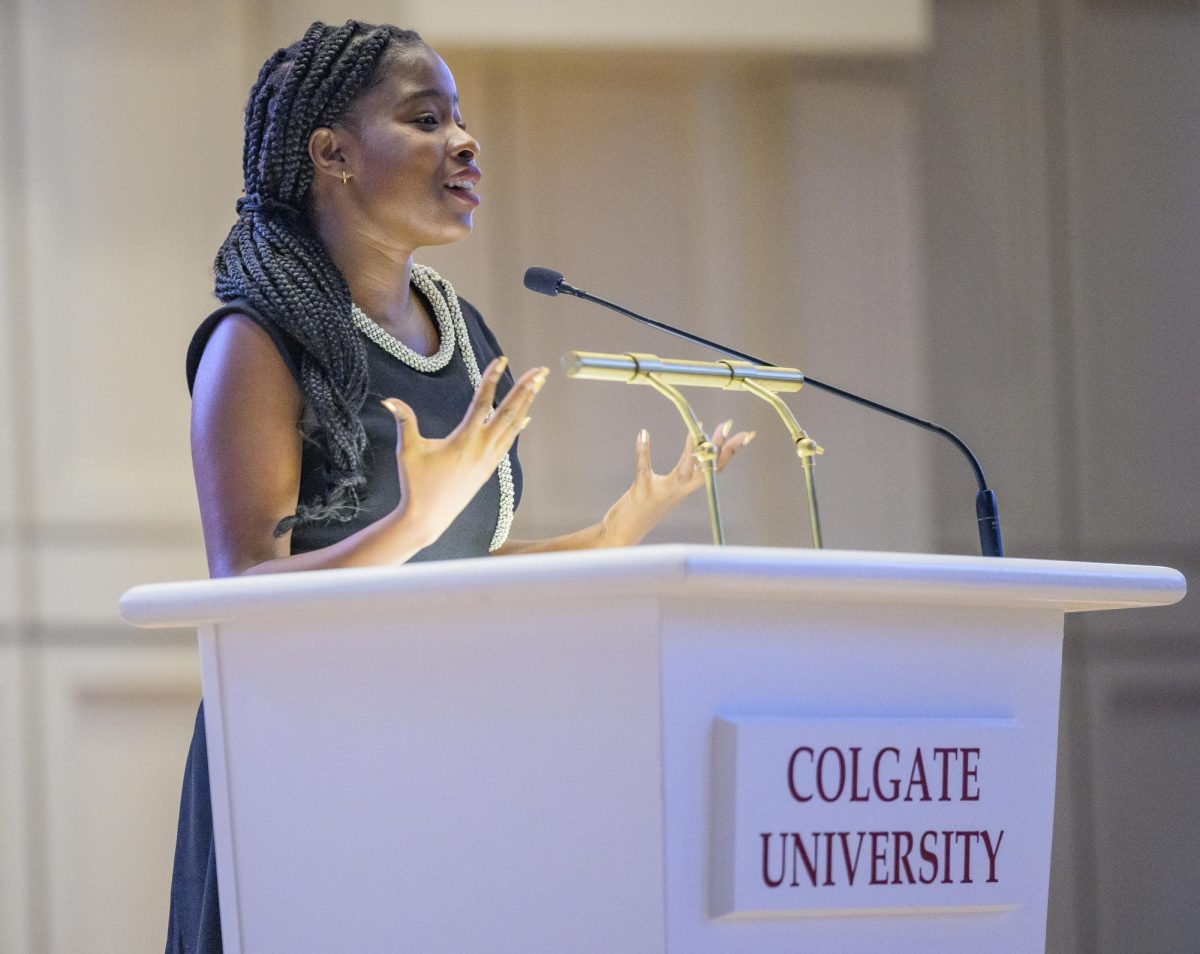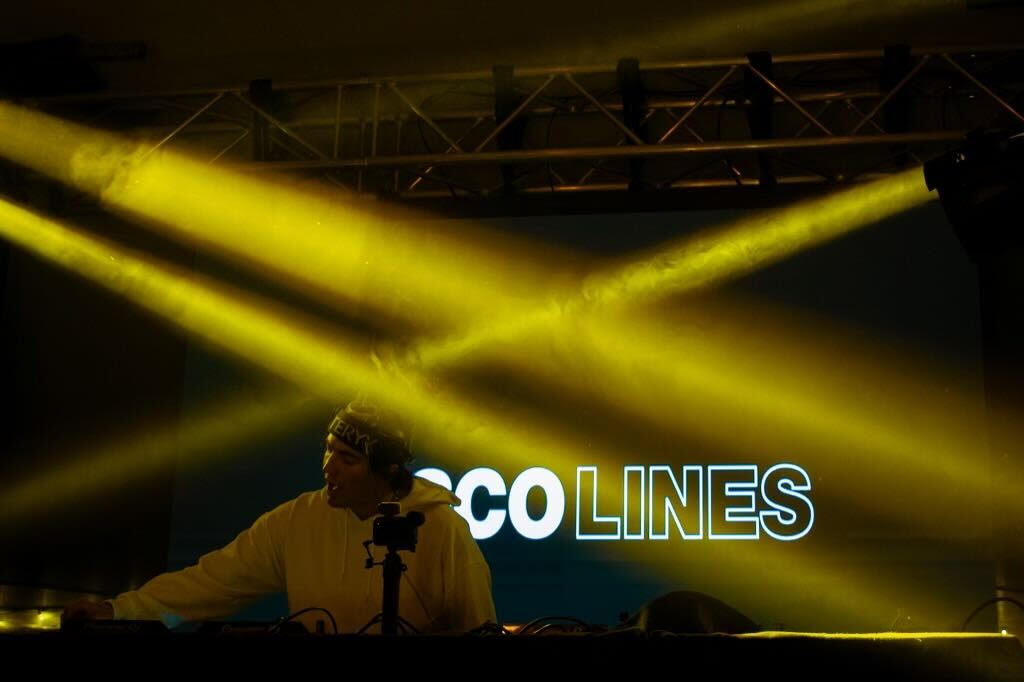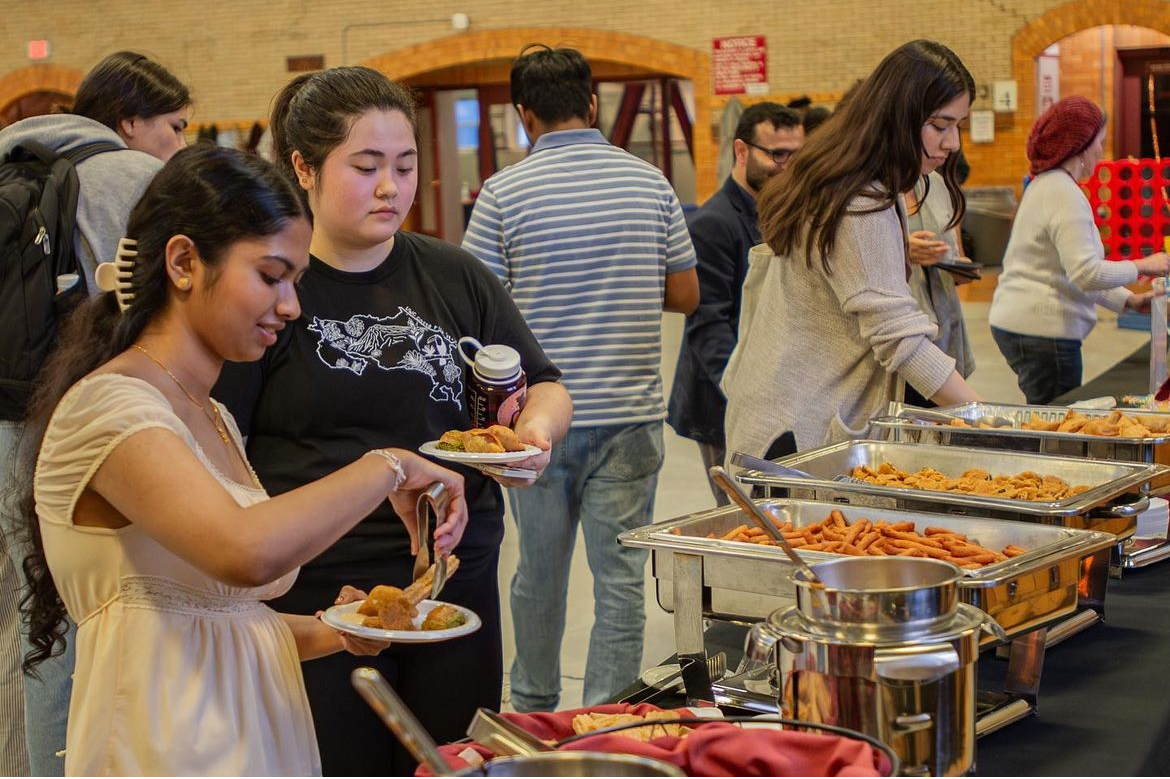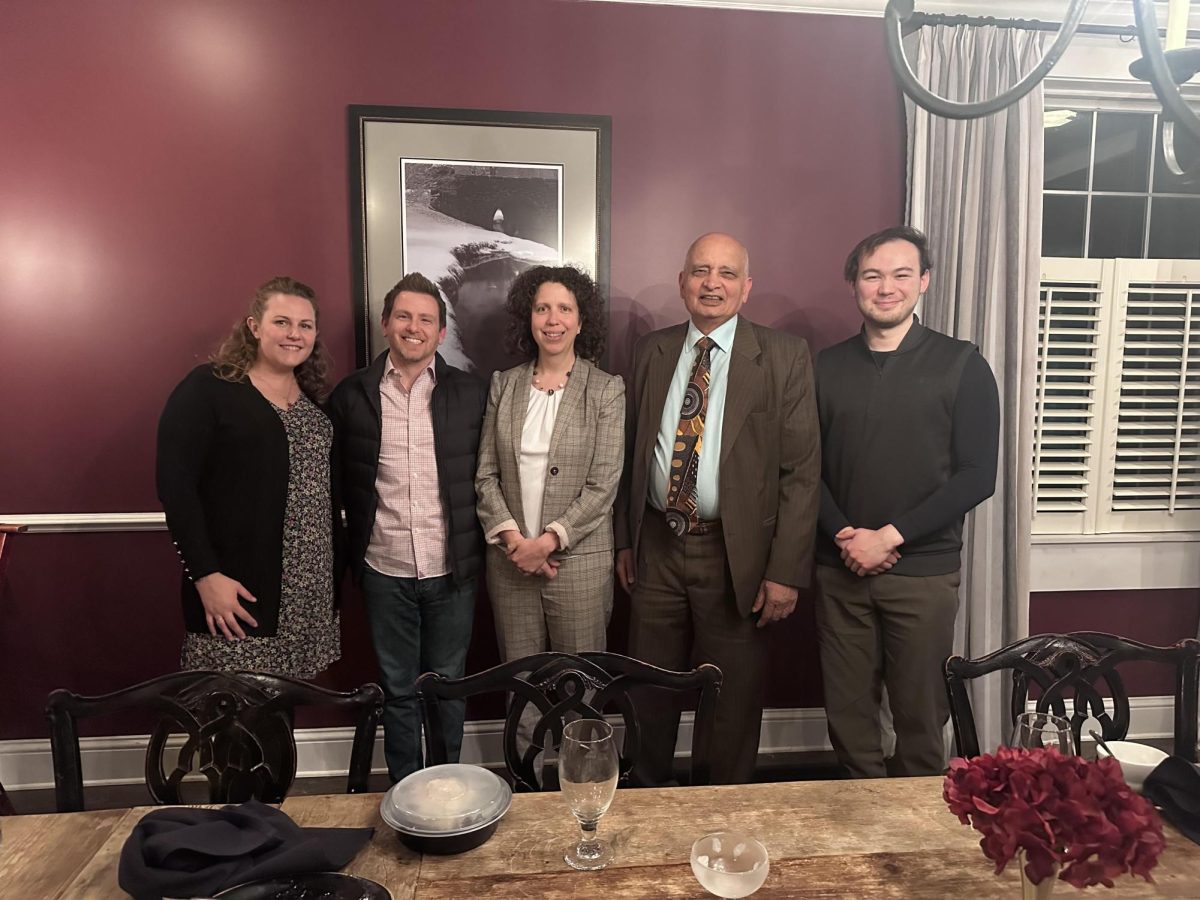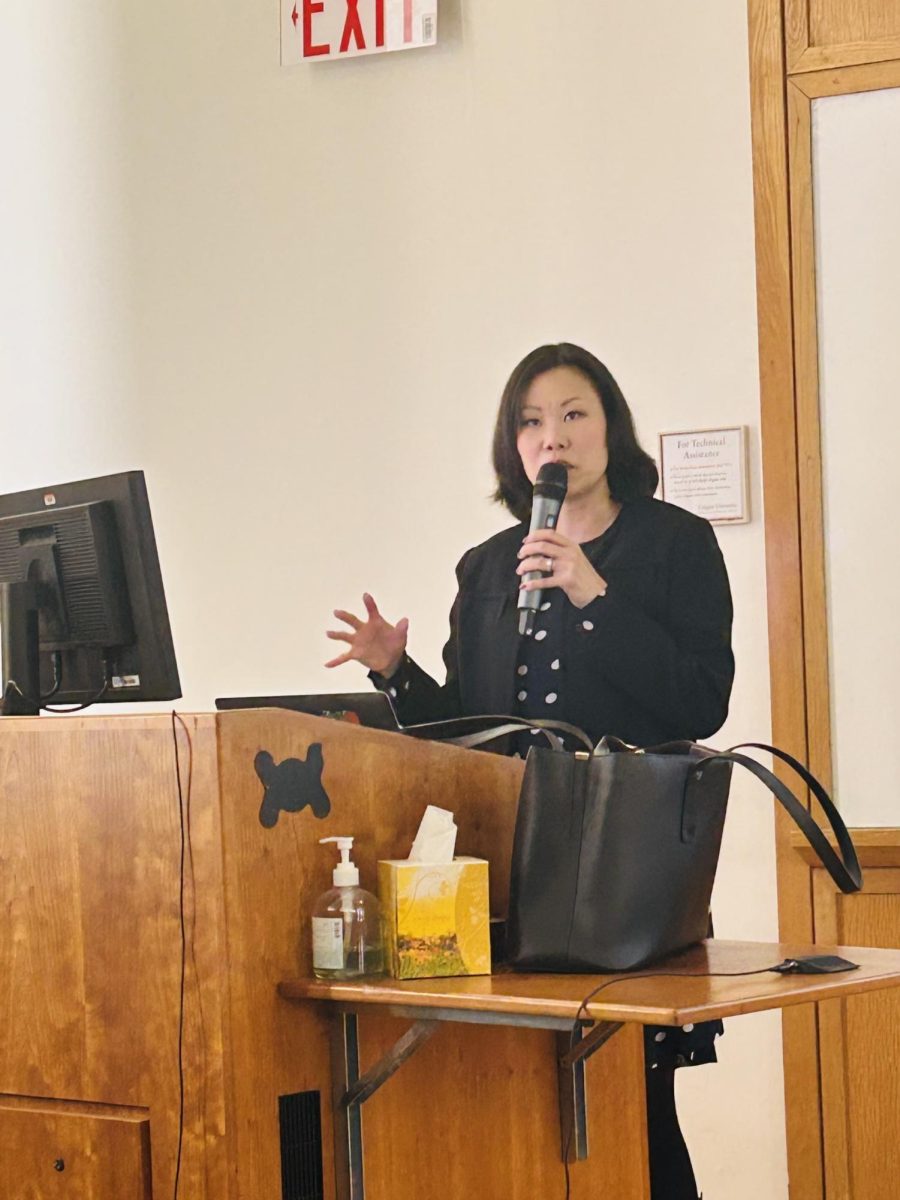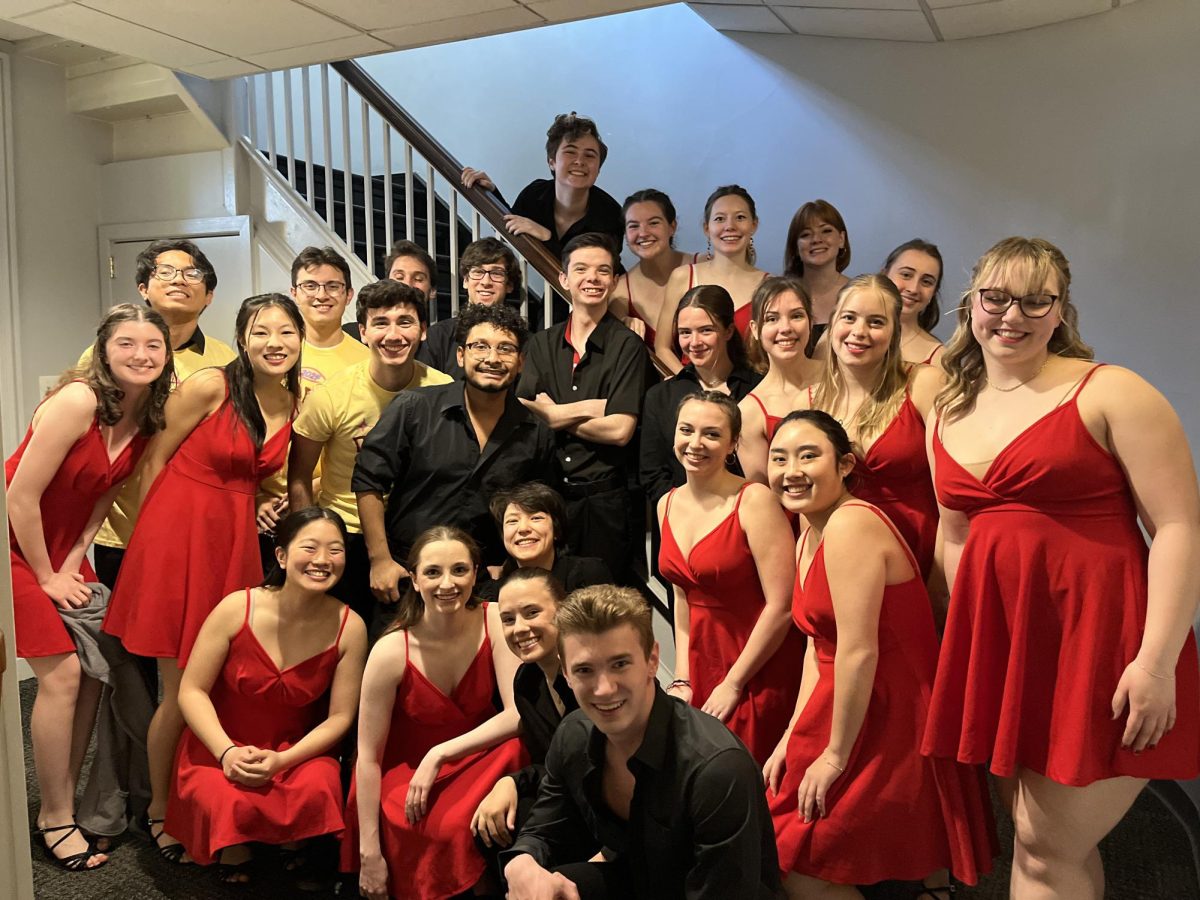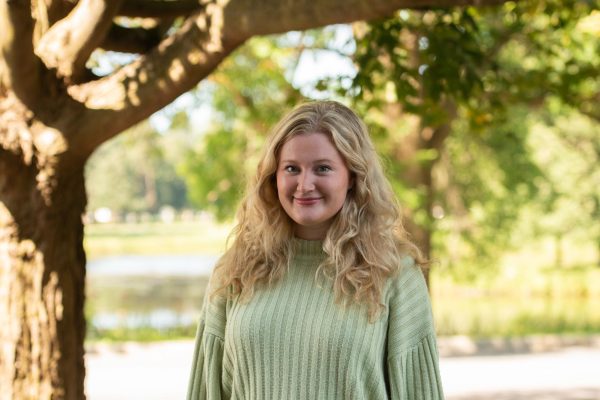Poet and activist Amanda Gorman headlined Arts, Creativity and Innovation Weekend as part of the Kershner Family Series Global Leaders at Colgate University on Friday, April 5. Gorman is the youngest poet to read at a U.S. presidential inauguration and the first person to be named a National Youth Poet Laureate in 2017 by Urban Word.
Gorman started writing poetry at the age of five and received wide-scale recognition following her poetry reading of her original work, “The Hill We Climb,” at President Joe Biden’s inauguration in Jan. 2021. Recently, Gorman published a New York Times bestselling novel, “Call Us What We Carry,” which includes original works inspired by the memories and experiences of the COVID-19 pandemic. During her discussion, Gorman shared her poetry-writing process and the inspiration behind her work, as well as how being the inaugural poet and the first National Youth Poet Laureate changed her life.
Gorman began her talk by inviting the audience to engage in a poetry reading for three of her poems: “Fugue,” “The Unordinary World” and “What We Carry.” Kezia Page, associate professor of English and Africana & Latin American studies, then led a question and answer session with the poet.
Page began by asking Gorman about how poetry can be innovative and how Gorman feels she has inspired innovation in the craft.
“I think there’s always been innovation [and] creativity in the literary heritage that I stem from. I think where I try to input a little bit of my own innovation is by using [the] totality of who I am, to invite poetry into spaces that, historically, it’s been excluded from,” Gorman said.
In her position as National Youth Poet Laureate, Gorman brought poetry into spaces like the Met Gala, Vogue magazine, late-night television and even the Empire State Building. Gorman discussed how being the first person to hold the title of National Youth Poet Laureate granted her more freedoms over what the title entailed, including making poetry youthful and available in more public spaces. Gorman hoped that the art of poetry would continue to be included and grow in these spaces.
“I might be the first poet to do some of the things I’ve done, but the plan is to not be the last,” Gorman said.
Gorman graduated from Harvard University in 2020 with a bachelor’s degree in sociology and discussed how her studies shaped her poetry.
“[Sociology] really forced me to look at the social structures of the world, at patterns, globalization and narrative frame so I could understand poetry as a mechanism for social change,” Gorman said.
Gorman noted the amount of sociological archival research that went into her novel, “Call Us What We Carry.” She particularly investigated the social impacts of the 1918 influenza epidemic and compared it to the 2020 COVID-19 pandemic.
“I looked into studies of the levels of social trust and how we changed in the 1918 influenza epidemic. It turns out that the children who were raised by parents who survived that public health crisis had much more diminished levels of social trust in their communities [and] institutions around them,” Gorman said. “That’s kind of why ‘Fugue’ focuses so much on the importance of what might feel like small moments — like this, being in a room or being connected or interacting with people — [that] actually [creates] the fabric of social trust that a nation depends on.”
Senior Lola Carino attended the talk and a smaller Q&A session with Gorman for her English course on African American literature. Carino was excited to meet Gorman after seeing her poetry performance at the 2021 inauguration and was inspired by Gorman’s interest in sociology.
“Being an English major and a sociology minor, I always try to find ways in which I can use my sociological lens in literature, and it was really amazing to hear how [Gorman] was able to do that and continues to do that,” Carino said. “She pointed out particular references to her sociological research in her book, ‘Call Us What We Carry,’ and I found that so fascinating.”
Gorman also discussed how her personal journey with a speech impediment impacted her poetry. Gorman noted that her speech impediment is a source of inspiration and helped create her personal performance style, including how she uses her body in poetry readings.
“It wasn’t until I did a lot of self-work that I realized what I considered a disability was really a superpower, and I learned how to lean into it as an incredible source of strength to this day,” Gorman said.
Gorman spoke about how her life changed overnight following her performance of “The Hill We Climb” at the 2021 presidential inauguration.
“I think I’m still processing what that is, what that did to me, what that did to my relationships and what that did to my craft,” Gorman said. “I’m just trying to handle that growth with as much intentionality and grace as I can.”
Senior Dulcie Lou Morris also attended the smaller Q&A session as part of her African American literature course. Morris wanted to attend the talk because she admired how much Gorman had been able to accomplish at just 26 years old.
“I think my favorite part of [Gorman’s] talk was when she discussed how she utilizes other parts of her knowledge in her writing, and that she draws inspiration from so many different things ranging from her speech impediment to her sociology to her archival research,” Morris said.
Carino also discussed her favorite aspects of Gorman’s talk and was particularly struck by Gorman’s archival research about the AIDS crisis. Additionally, Carino was inspired by Gorman’s ability to use poetry as an avenue for activism.
“My favorite part of the talk was being able to hear her perspective on how to balance the weight of the world with her passion for poetry and utilize it as a means for power and change,” Carino said.
Tickets for Gorman’s talk sold out quickly, with students and the broader Hamilton community filling the chapel to hear her poetry and learn about her experience as an activist.


